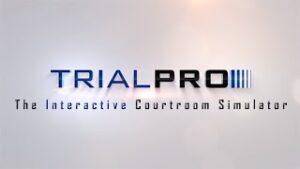Criminal and Constitutional Law Lesson Plans
Criminal and Constitutional Law (CCL) Course
The CCL course is the optional advanced course for several pathways.
To learn more about LAPSEN Courses and Standards – Click Here
Be sure to review the entire course standards first – Click Here
DO NOT SHARE ANY OF THIS CONTENT WITH STUDENTS!
Make a copy for your own use.
Once you have your own copy, you can modify assignments that can be shared with students.
This is not student curriculum – these are instructor unit lesson plans.
Lesson Plans
Resources are always being added. Check back from time to time.
Please – submit YOUR lessons and resources. Email info@lapsen.org to learn how.
The lesson plans for the legal services pathway were created, in part, from a generous grant from the
Georgia Bar Foundations’ IOLTA Grant.

Section 1: Exploring Law in America
|
Objective 1: Describe the various careers available in the legal field |
|
Objective 2: Demonstrate job interview skills and interview preparation steps |
|
Objective 3: Demonstrate an understanding of ethical responsibilities in the legal field |
Section 2: Sources of law
|
Objective 1: Describe sources of legal authority in the United States |
|
Objective 2: Analyze sources of legal authority in the United States |
Section 3: The Court System
Unit Lesson Plan Time: 15 hours
Unit Lesson Plans – Click Here
Writer – submission pending
|
Objective 1: Differentiate federal courts vs state courts |
|
Objective 2: Describe the role and jurisdiction of state courts |
|
Objective 3: Describe the role and jurisdiction of federal courts |
|
Objective 4: Explain how case law is created and describe examples of important case law |
Section 4: Introduction to the Bill of Rights
|
Objective 1: Describe important constitutional rights that apply to legal cases |
|
Objective 2: Explain how constitutional rights apply in a trial setting |
|
Objective 3: Describe constitutional rights that apply in criminal cases |
Section 5: Constitutional Law and Criminal Justice
|
Objective 1: Explain how Fourth Amendment rules govern searches of property and persons |
|
Objective 2: Describe how Fourth Amendment rules govern arrests and stops |
|
Objective 3: Explain interrogation standards that are based on the Fifth Amendment |
|
Objective 4: Apply constitutional law to law enforcement scenarios to determine whether government conduct is lawful |
Section 6: Crimes and Crime Elements
|
Objective 1: Describe how crimes are classified and differentiated |
|
Objective 2: Explain what crime elements are and identify them in statutes |
|
Objective 3: Describe the elements required to prove common criminal charges and defenses |
|
Objective 4: Apply criminal law statutes to fact patterns to determine if a crime has been committed |
Section 7: Mock trials to enhance legal analysis, writing, and communication
|
Objective 1: Describe the mock trial process and legal documents contained in a mock trial case |
|
Objective 2: Analyze case materials to determine what information is relevant to proving a case, including a differentiation of helpful and harmful information |
|
Objective 3: Draft witness examination questions and answers using professional language and grammar |
|
Objective 4: Demonstrate substantive trial skills in an organized and professional manner |
|
Objective 5: Analyze and interpret legal documents and laws to develop legal arguments and conclusions |
|
Objective 6: Convey relevant legal information in an organized and cohesive opening statement or closing argument |
|
Objective 7: Present a well organized trial presentation that utilizes professional language and focuses on satisfying all applicable legal standards |
Section 8: New and emerging areas of the law
Objective 1: Explain the law surrounding emerging issues in constitutional and criminal law.
 Trial Pro – the Best Resource for Teaching Objections!
Trial Pro – the Best Resource for Teaching Objections!
Trial Pro works with LAPSEN LS Programs to offer their Trial Pro simulator and training materials at an amazingly affordable price.